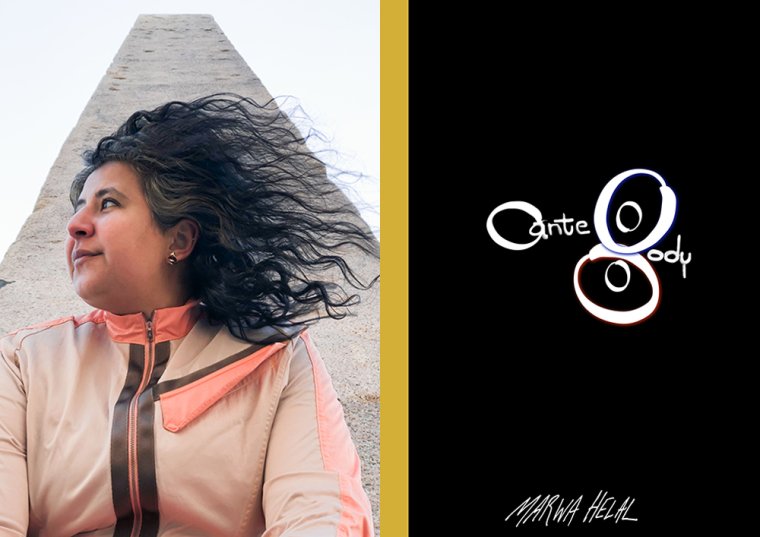This week’s installment of Ten Questions features Marwa Helal, whose second poetry collection, Ante body, will be published later this month by Nightboat Books. In this innovative volume, Helal meditates on how to live both inside and against systems of oppression: patriarchy, capitalism, racism, and carceral government, among others. In lines that mingle pathos with bleak humor, Helal considers what it means, and what it costs, to belong—to the world, to nations, to one another. Deploying a poetic form she invented called “The Arabic,” in which verse is read from right to left in the manner of Arabic, Helal powerfully critiques the role of English in perpetuating global injustice. Poet and essayist Cathy Park Hong called Ante body “a memorable and ferocious argument for radical fugitivity.” Nightboat Books published Helal’s first full-length poetry collection, Invasive species, in 2019. The winner of a 2021 Whiting Award and fellowships from the Jerome Foundation, Poets House, and Cave Canem Foundation, Helal was born in Al Mansurah, Egypt, and lives everywhere.

Marwa Helal, author of Ante body. (Credit: Beowulf Sheehan)
1. How long did it take you to write Ante body?
Approximately five years. With lots of breaks for writing and research, and to make space for the work to take shape.
2. What was the most challenging thing about writing the book?
The most challenging thing was finding the right overall structure, which turned out to be the most fun and rewarding part of the process.
3. Where, when, and how often do you write?
I try to keep a steady practice of writing daily morning pages, which lends itself to feeling like I am writing all the time.
4. What are you reading right now?
I’m currently rereading Create Dangerously by Edwidge Danticat. As a teaching artist with PEN America’s Writing as Activism fellows, I’ve been reading a lot of June Jordan’s work.
5. Which author, in your opinion, deserves wider recognition?
I trust these writers will eventually get their due recognition: Ana Božičević, a true genius and guide; Hayan Charara, whose latest book just dropped; as well as Zaina Alsous, Jess Rizkallah, Roberto Carlos Garcia, Kyle Carrero Lopez, Alejandro Heredia, and John Paul Infante.
6. What is the biggest impediment to your writing life?
Impediments are excuses. I don’t have the time or privilege to make those. So, most likely, alternating cycles of anxiety and depression are my impediments, which writing helps to manage. See what I mean?
7. How did you know when the book was finished?
I knew it was finished as I was writing, “WHO REAL؟” That was the poem that made the whole thing snap together. I could see I was making a book that read both ways.
PS: If you call it “backwards,” it’s you who’s backwards.
8. If you could go back in time and talk to the earlier you, before you started Ante body, what would you say?
This book has its own life force. All you have to do is allow it to come together. It’s going to take care of you and a lot of people you don’t even know you care about yet.
9. Who is your most trusted reader of your work and why?
I’m grateful to have a few. Xan Phillips and Ricardo Maldonado are usually my first and last readers. I know I’m on the right track if Xan plays the language and wordplay back to me. Ricky helps me refine my vision and find that missing potential or extra energy for the poem. They’re both phenomenal writers, teachers, thinkers, and artists.
10. What’s the best piece of writing advice you’ve ever heard?
“Don’t be so precious about it.”—Tracie Morris. Very liberating. We get it down to get to the next thing.








